Banks recognise that the security of your personal and account information is of paramount importance to you. Our commitment to safeguarding your data is a cornerstone of our operations, as we understand that our success as a financial institution hinges on providing secure banking services.
To ensure your safety while using our online banking platform, we have implemented a comprehensive suite of security measures. These measures include advanced encryption protocols that protect your information during transmission over the Internet.
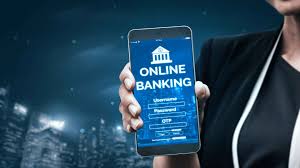
Additionally, we use multi-factor authentication to verify your identity every time you access your account. This extra layer of protection helps ensure that only you can access sensitive information about your finances.
It is equally crucial for you to play an active role in maintaining security. By keeping your access codes and passwords confidential, you can significantly protect your account from unauthorised access.
Together with our robust security measures and your diligence in managing your credentials, we aim to create a safe environment for all your banking transactions and interactions. We are committed to securing not just data but also the trust you place in us every day.
Every customer is required to maintain a unique Username and Password for their online banking account, ensuring that their personal financial information remains secure. Initially, the bank administrator assigns an original password upon account creation. However, to enhance security, customers are mandated to change this default password immediately after logging in for the first time.

This policy encourages each customer to create a private password that only they know, adding an extra layer of protection against unauthorised access. In the event that you lose or forget your password, recovery options are available to help you regain access to your account.
Customers can contact the bank administrator, who will reset the password after verifying their identity. Alternatively, you can click on the Forgot Password link located on the login page to receive instructions via email for resetting your password.
By implementing these measures, the bank prioritises the safety of its customers’ accounts while providing accessible support features when needed.
If an unauthorised individual attempts to access a customer’s account by guessing the username, the system has robust security measures in place. After three incorrect password entries, the system automatically disables the password, rendering that login combination invalid. This prevents potential intruders from gaining access.
However, if you find yourself locked out because you mistakenly entered your password three times, there’s no need to panic. You have two primary options to regain access to your account. The first option is to call the bank directly; a representative can assist you in re-establishing your password and getting back into your account.
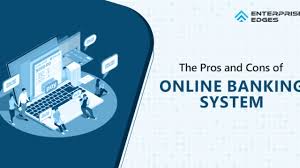
Alternatively, you may also choose to reset your password online. Simply enter your username and click on the Forgot Password link for guidance on how to create a new one.
A standard error that leads customers to lock themselves out is accidentally having the Caps Lock feature enabled while typing their passwords. Taking care to check this simple detail can make all the difference in avoiding unnecessary frustration. Remember, safeguarding your account begins with being mindful of these small details!
To ensure your security, we implement an automatic log-off feature that enhances your protection during online banking sessions. If there is no activity for 30 minutes, you will be automatically logged out of your account. This measure helps to safeguard your financial information, mainly if you leave your session open unintentionally.
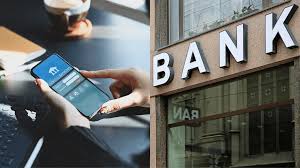
In addition to this timeout feature, we require the use of secure browsers when accessing our online services. Secure browsers are essential for protecting the sensitive personal and account information exchanged between your device and your bank. They enable the encryption of data in transit, ensuring it remains confidential.
Encryption works by scrambling information so that only authorised parties can access it. When you send personal details to us, they are encrypted during transmission. Only we at Adrian Bank possess the decryption keys to access this information in its original form.
Similarly, any personal or account updates we send back to you are also encrypted. This dual layer of protection ensures that only you and Adrian Bank can view the sensitive data being communicated. Rest assured that with these measures in place, your online banking experience is safeguarded against unauthorised access.
Our server operates in a secure environment, effectively isolated from the direct reach of the Internet. This isolation is achieved through the strategic use of a router and a dedicated firewall, which together function as vigilant electronic guardians.
Every request to access the server must first pass through both the router and the firewall, ensuring that only filtered traffic can gain entry. The router plays a crucial role here; it is a physical device that manages incoming and outgoing network traffic. Meanwhile, the firewall acts as sophisticated software that enforces security protocols.
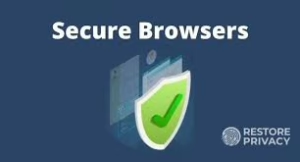
This combination of hardware and software tightly controls access to the Bank’s server. Initially, all external traffic is blocked by default, creating a robust barrier against unauthorised access. Only when necessary does the system open up specific pathways for authorised users, allowing them to connect securely while keeping potential threats at bay? Together, they ensure that only legitimate requests are granted permission to enter our secure network space.
In today’s digital age, safeguarding your internet security is crucial, especially when it comes to banking. While Adrian Bank is committed to protecting your banking privacy, your proactive measures can significantly enhance the security of your account.
Firstly, always keep your password confidential. It serves as the first line of defence against unauthorised access. Moreover, it’s wise to change your password regularly—doing so every few months can significantly reduce the risk of cyber threats.
When conducting online transactions, remain at your computer until all processes are complete and ensure you log out afterward. This simple act prevents others from accessing your account if they happen upon an unattended session.
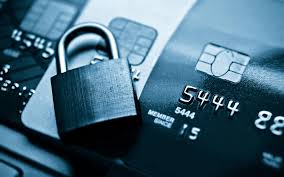
Also, before exploring other websites after banking, make sure to log out of Online Banking completely. This step minimises the chance of accidental exposure to potential risks from unsafe sites.
Lastly, stay vigilant for any suspicious or unusual activity in your accounts. If you detect anything out of the ordinary, don’t hesitate to contact our Online Banking Department during business hours for assistance. Your vigilance, coupled with our efforts, will create a robust shield around your online finances.
Maxthon
In the current digital landscape, protecting your online banking details is crucial, mainly when using a browser like Maxthon. There are numerous proactive strategies you can adopt to keep your financial information safe. First and foremost, it’s vital to create robust passwords for your banking accounts. These passwords should be both unique and complex, mixing uppercase and lowercase letters with numbers and special characters. Avoid using easily guessable information like birthdays or pet names; instead, strive for combinations that are hard to crack.

Another important measure to enhance your security is to activate Two-Factor Authentication (2FA) if your bank offers it. Enabling 2FA adds a layer of protection by requiring a code to be sent via text or email each time you log in, making it much harder for unauthorised users to gain access.
Keeping your Maxthon browser up-to-date is also essential for maintaining security. Regularly checking for updates ensures that you’re running the latest version, which often includes critical security patches addressing newly identified vulnerabilities.
Furthermore, make it a routine to clear your browsing data frequently—this involves deleting your browsing history, cache files, and cookies on a regular basis. By doing this, you remove any sensitive information that hackers could potentially exploit if they were able to access your device.
If privacy during online banking is a significant concern for you, utilising Maxthon’s privacy mode can be highly advantageous. This feature allows you to browse without saving any data from previous sessions—no cookies or site information—providing an extra layer of security while performing financial transactions.
Additionally, consider bolstering the safety of your online experience by installing trustworthy security extensions or antivirus software designed specifically for enhancing browser security.
